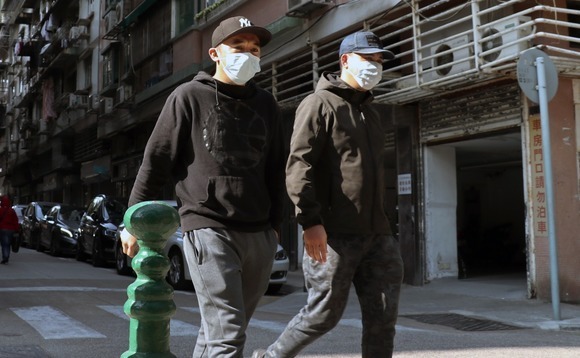
Coronavirus: PE impact assessment

Existing analysis of the impact of COVID-19 on PE and VC in Asia is largely based on anecdotes and incomplete datasets. A detailed prognosis must wait - and then the broader implications for consumption habits will take even longer to emerge
AVCJ will likely, in due course, offer detailed coverage of the impact of the new coronavirus outbreak on private equity and venture capital activity in the region. It is a matter of waiting for enough data points on which to make a fair assessment.
Right now, we have little more than snapshots. There has been a flurry of interest in China healthcare as VC investors either champion the efforts being made by their portfolio companies in helping combat COVID-19 or consider how the situation has exposed gaps in the healthcare system that need to be addressed. Drug development is one area of interest, but so too are diagnostics, digital healthcare services, and the provision of medical equipment.
HighLight Capital is one of few GPs to admit publicly that its fundraising efforts are being impeded. Having achieved a first close on its latest vehicle in January, within three months of launch, a final close isn't expected until the autumn. Steven Wang, HighLight's founder and managing partner, said this "would be beneficial to potential LPs as they would plan their work and monitor our performance at a comfortable pace." In other words, LPs don't want to visit Shanghai at present.
Yes, fundraising by China-focused managers was slow and is now even slower. HighLight is one of several local GPs anticipating delays because LPs either cannot attend on-site due diligence sessions or their investment committees won't sign off on China commitments until there is more visibility on the timeline for COVID-19. Other managers are postponing their fund launches.
It is also worth noting this isn't solely a China problem. Many LPs within Asia are subject to travel bans, while those based outside the region are reluctant to enter it. Facilitating the spread of the virus is one concern – conference call has been the primary means of participation at some recent annual general meetings, with those attending in person asking in advance whether LPs from Hong Kong and Singapore will be coming – but the prospect of getting marooned should quarantine restrictions widen is another.
Yes, investment and exit activity in China is off pace, notwithstanding government efforts to stimulate the economy. Funding rounds for healthcare start-ups are an obvious exception, though these tend not to move the needle much in terms of headline numbers. Given the general reluctance or inability to travel within China, or even congregate in public spaces, muted commercial activity is to be expected. Investors don't want – or can't – do business in these conditions.
It is tempting to draw comparisons with SARS in 2003, but it was a different epidemic at a different time. From an economic perspective, China is bigger, more integrated, and more globally significant than it was then. However, there is one parallel that hits home. SARS accelerated the adoption of e-commerce because consumers didn't want to visit physical stores. Around this time, JD.com switched to a pure online platform and Alibaba Group launched Taobao, its B2C channel.
Since the emergence of COVID-19, there has been a surge in new registrations on digital healthcare platforms such as Ping An Good Doctor, Alibaba Health and WeDoctor as people with minor ailments opt for online consultations rather than visit the hospital. This speaks to a longer-lasting adjustment in lifestyles – already identified by several China commentators – in which digital supplants physical.
These trends are not necessarily new, but COVID-19 has effectively enforced wider adoption of habits, which will see them become more entrenched. Grocery e-commerce and online food delivery services are obvious beneficiaries, in addition to healthcare. The same applies offline-to-online switch applies to education and entertainment – schools are closed, cinemas and karaoke lounges are off-limits – while remote working arrangements will likely become more popular.
The full impact of COVID-19 on these phenomena can only be gauged with hindsight – months and years rather than days and weeks.
Tim Burroughs
Managing Editor
Asian Venture Capital Journal
Latest News
Asian GPs slow implementation of ESG policies - survey
Asia-based private equity firms are assigning more dedicated resources to environment, social, and governance (ESG) programmes, but policy changes have slowed in the past 12 months, in part due to concerns raised internally and by LPs, according to a...
Singapore fintech start-up LXA gets $10m seed round
New Enterprise Associates (NEA) has led a USD 10m seed round for Singapore’s LXA, a financial technology start-up launched by a former Asia senior executive at The Blackstone Group.
India's InCred announces $60m round, claims unicorn status
Indian non-bank lender InCred Financial Services said it has received INR 5bn (USD 60m) at a valuation of at least USD 1bn from unnamed investors including “a global private equity fund.”
Insight leads $50m round for Australia's Roller
Insight Partners has led a USD 50m round for Australia’s Roller, a venue management software provider specializing in family fun parks.








